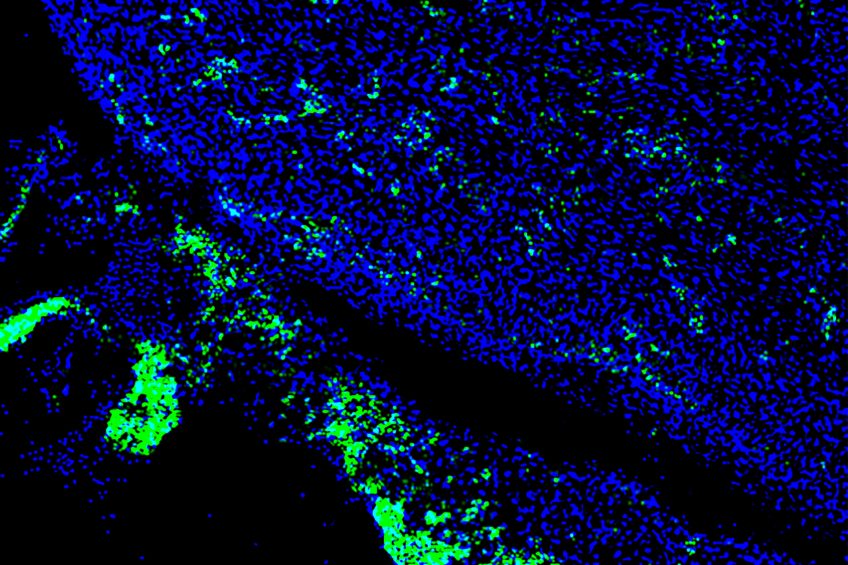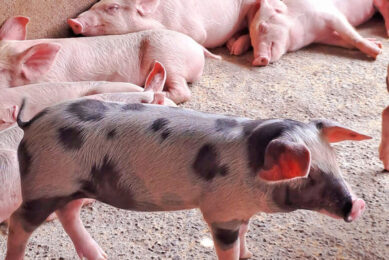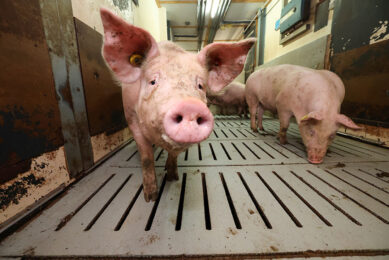Human-pig hybrid created in lab for organs

US scientists have created a hybrid of a human and a pig in a lab. This is an important step to growing human organs inside animals.
Hybrid embryo animals with genetics of different origins are called ‘chimera’, after the Greek mythological creature, of a lion with a goat’s head arising from its back and a tail that might bite like a snake.
American researchers from the Salk Institute of Biological Studies in California published about their research in the scientific journal Cell. It took them about 1,500 pig embryos before they managed to make one grow in a sow’s uterus. The hybrid animal was killed before it could be born.
Growing functional organs and tissues
The scientists hope that they can ultimately grow functional organs and tissues that can then be used for transplants. Such chimaeras might also be used for things like drug-testing, since they would react in the same way humans do.
It wasn’t an easy process as the researchers started out with rats and mice. They intervened in the embryonal development of organs like eyes, heart or pancreas by taking away certain genes. Next, they replaced stem cells of rats in the embryo, after which these cells took over the work and formed the missing organs.
In theory, pigs are very near humans, but still, the evolutionary distance between humans and pigs turned out to be 5 times bigger than between rats and mice.
Reproducing a pig is like duplicating a key
Lead researcher and professor Juan Carlos Izpisua Belmonte told Science Daily, “It’s like when you try to duplicate a key. The duplicate looks almost identical, but when you get home, it doesn’t open the door. There is something we are not doing right.” The professor is attached to the institute’s Gene Expression Laboratory.
VIDEO: Prof Izpisua Belmonte and staff scientist Jun Wu speak on the developments.
He continued to say, “We thought growing human cells in an animal would be much more fruitful. We still have many things to learn about the early development of cells.”
The researchers still want to do more work to be able to improve the efficiency of the combined embryos and allow them to be more precise about combining the 2.
Advancing science and medicine by studying embryos
On the website of the Salk Institute, Izpisua Belmonte said, “Our findings may offer hope for advancing science and medicine by providing an unprecedented ability to study early embryo development and organ formation, as well as a potential new avenue for medical therapies.”
“We have shown that a precisely targeted technology can allow an organism from one species to produce a specific organ composed of cells from another species. This provides us with an important tool for studying species evolution, biology and disease, and may lead ultimately to the ability to grow human organs for transplant.”

Such work can be done by using gene editing tools to delete specific important genes that are important for the creation of organs, while the egg grows. As it does so, rat cells are injected and the embryos then use them to fill the gap.
Profound secret uncovered
Salk staff scientist and lead author Jun Wu added, “Our rodent experiments reveal a profound secret that a developing mouse was able to unlock a gallbladder developmental programme in rat cells that is normally suppressed during rat development. This highlights the importance of the host environment in controlling organ development and evolutionary speciation.”
The research in Cell was authored by a long list of scientists, including Prof Izpisua Belmonte and Dr Jun Wu.
Join 18,000+ subscribers
Subscribe to our newsletter to stay updated about all the need-to-know content in the pigsector, three times a week. Beheer
Beheer










 WP Admin
WP Admin  Bewerk bericht
Bewerk bericht